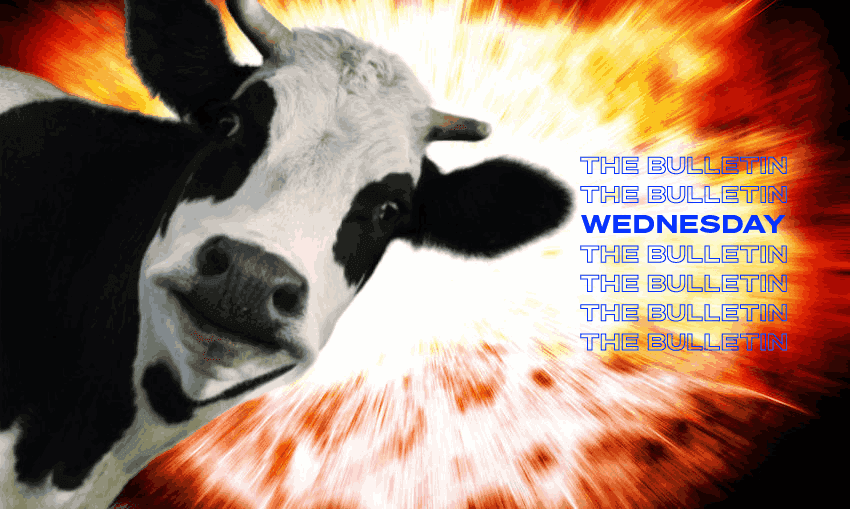Labelled pragmatic from the outset, the government’s proposal has drawn fire from farmers while Greenpeace blasted the proposal’s ability to cut climate emissions from agriculture, writes Anna Rawhiti-Connell in The Bulletin
No free lunch
Yesterday’s announcement of the proposed agricultural emission scheme presented a challenge to anyone writing short form news – 20-year timeline, big overlapping issues, complicated science and a lot of reaction. But it impacts all of us so here we go. First, a simple reminder from RNZ’s Farah Hancock published last year of why we need to tackle agricultural emissions. The Herald’s Jamie Morton has a great backgrounder on the proposal and an explanation of exactly how it will work. Stuff’s Gerhard Uys tackles the average punter’s concern about whether it will impact the price of food. Economists have weighed in on that this morning too. Westpac senior agri-economist Nathan Penny says “There is no free lunch for this policy.” (paywalled)
James Shaw’s preferred scheme rejected by cabinet
The scheme proposes charging farmers for emissions produced by, as Stuff’s Eloise Gibson neatly put it, burps and fertiliser, using a levy that will be set by cabinet, with advice from the Climate Change Commission either every one or three years. Climate minister James Shaw wanted a cap and trade system –something closer to the Emissions Trading Scheme where prices are set by the market – but was overruled. The government deemed it too complex to achieve by 2025. Shaw was concerned that having cabinet set the levy would make it susceptible to lobbying. The shape of the proposed scheme also isn’t what was backed by the industry.
The reaction
The industry groups involved in the He Waka Eke Noa (HWEN) working group have strongly opposed the proposal. Federated Farmers national president Andrew Hoggard said it will “rip the guts out of small-town New Zealand” concerned about the loss of sheep and beef farmland to forest and the impact on small towns. The Herald’s Adam Pearse and Michael Neilson have that reaction summarised. The sector has two main concerns: the government reducing categories for sequestration (on-farm planting to offset methane emissions – explained here), and the levies being set by the government and not the sector, as proposed by the HWEN group. On Facebook, Groundswell NZ is telling supporters to “Fuel up the tractors people” and promising “MORE TO COME, STAY TUNED”. Greenpeace says the proposal doesn’t go far enough.
The potential political fallout
The plan was labelled pragmatic from the outset by the government. Stuff’s Luke Malpass’s analysis suggests that it will do no harm to Shaw or Labour, but that National’s response to it “will say a lot about the still-forming political instincts of Luxon and his top team”. Broadly speaking, those most impacted vote for National, not Labour. The plan is now out for consultation and as Stuff’s Anna Whyte reports, the industry wants a backdown. The Herald’s editorial this morning (paywalled) ends by concluding “that flames of condemnation come from all sides will give this government some confidence it has landed somewhere near the right position.”


